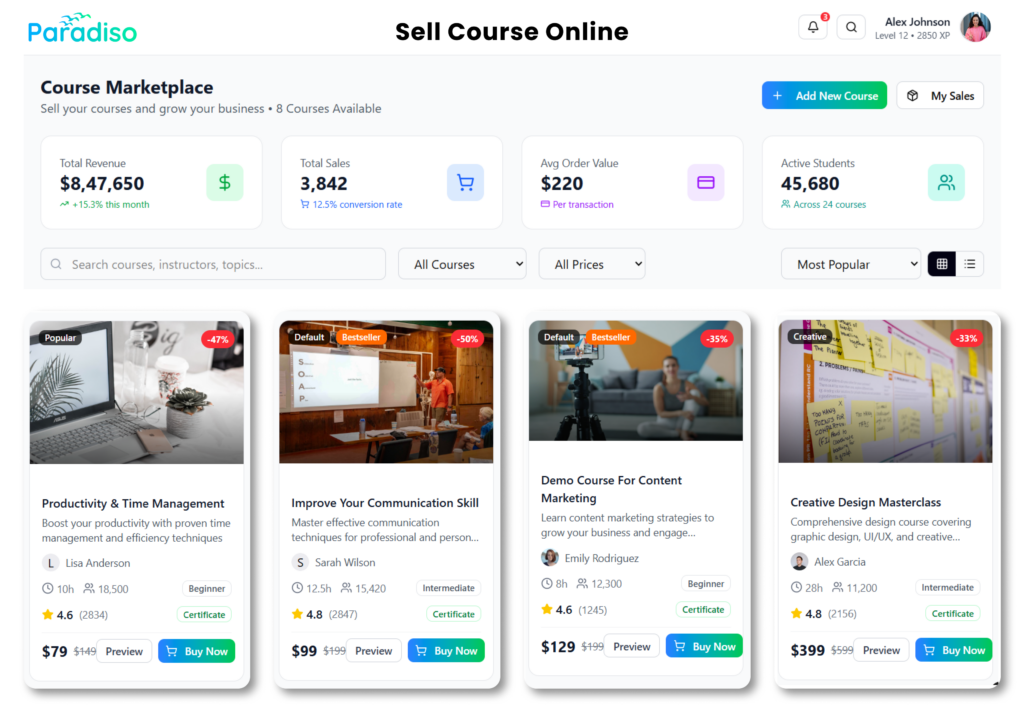What is the creator economy?
The State of the Creator Economy
Who can become a creator?
Types of creators in the creator economy
There are many different types of creators in the creator economy, as the term “creator” encompasses a wide range of individuals who produce and share content online. Some examples of different types of creators include:
- YouTubers: Creators who produce and share videos on YouTube.
- Streamers: Creators who live stream themselves playing video games, performing music, or doing other activities on platforms like Twitch.
- Podcasters: Creators who produce and share audio content, often in the form of a podcast.
- Writers: Creators who produce written content, such as blog posts, articles, or books.
- Artists: Creators who produce and share visual art, such as paintings, drawings, or digital art.
- Musicians: Creators who produce and share music through recorded tracks or live performances.
- Photographers: Creators who produce and share photographs.
- Vloggers: Creators who produce and share video content, often in the form of a “vlog” or video diary.
These are just a few examples, and there are many other types of creators in the creator economy. But, in general, anyone who produces and shares content online can be considered a creator.
How do you become a creator? We got you.
To become a creator, you generally need access to a computer and the internet, and you should be able to produce and share content online through a platform like YouTube, a blog, or a social media site. Here are some steps you can follow to start your journey as a creator:
- Identify your area of interest or expertise: What do you enjoy doing or have a particular talent for? Consider what content you would like to create and share with others.
- Choose a platform: There are many different platforms for creators to share their content. If you want to create courses and sell them online, you can choose Paradiso Course Cart as your platform for your content and your target audience.
- Start creating: Begin producing content in your chosen area of interest. This could involve writing, filming, drawing, or any other activity that is relevant to your chosen area of focus.
- Share your content: Once you have created some content, start sharing it online through the chosen platform (s). This will allow others to discover your work and start following you.
- Engage with your audience: As you build an audience, be sure to engage with your followers by responding to comments and messages and asking for feedback on your content. This helps build a community around your work and leads to more success as a creator.
- Promote your content: Consider using social media or other marketing tactics to promote your content and reach a wider audience.
- Consider monetization: Once you have built up a significant audience, consider monetizing your content through advertising, sponsorships, merchandise sales, or other methods.
Remember that becoming a successful creator takes time and effort, and it can be a challenging journey. However, it can also be very rewarding to share your creativity and skills with others and to earn a livelihood doing what you love.
Creators as Businesses
- Ad hoc project-based funding: This involves seeking funding for specific projects on a case-by-case basis. This can include applying for grants, crowdfunding campaigns, or seeking sponsorships from businesses or organizations.
- Subscription-based funding: Some creators offer their work on a subscription basis, where supporters can pay a regular fee to access exclusive content or receive other perks. This model can be particularly successful for creators who produce a high volume of regular content.
- Tip jar concept: Some creators, mainly those active on social media platforms, may use a “tip jar” system, where supporters can leave small monetary tips as a way of supporting their work. This can be done through methods such as PayPal or Venmo.
What else can creators sell?
Selling online courses is a popular way for creators to monetize their expertise and share their knowledge with a broader audience.- Selling Online Courses / Webinars: Creators can create and sell online courses to monetize their expertise and reach a global audience. Online courses can source passive income and allow creators to work at their own pace. Successful online courses are carefully planned and marketed to attract students and may also offer additional resources or support. By creating an online course, creators can establish themselves as experts in their field and build a reputation as a trusted source of information.
- Selling Newsletters/ebooks: Creators can sell newsletters and ebooks online to monetize their expertise and build a loyal following. Newsletters and ebooks can be sold through subscriptions or as one-time purchases and can be a regular source of income for creators. To sell newsletters and eBooks, creators can use the platform Paradiso Course Cart. To attract potential subscribers or buyers, creators must carefully plan and market their newsletters and ebooks.













